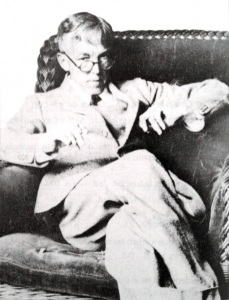There are infinitely many prime numbers..
Godefroy Harold Hardy (1877-1947) english mathematician, collected in his book self-justification of a mathematical two famous theorems of classical Greek mathematics. The first one states the primes are infinite:

We must to prove that there are infinitely many prime numbers, ie, the set of numbers:
2,3,5,7,11,13,17,19,23, …
has infinite elements. To do this we assume that this set has a finite number of elements, that is, there is a last number P.
On this hypothesis we define the number Q how:
Q=2·3·5·7·….·(P+1)
We know that if P is the last prime number, the number P + 1 is not divisible by any number since by assumption is not a prime number, so it is not divisible by 2,3,5,7 and P … it is only divisible by P+1 and 1 and so this we deduce that Q is a prime number but being Q a larger than P, we arrive at a contradiction since the hypothesis was that the largest prime number is P.
Consequently the hypothesis is false and therefore all the set of primes has infinite elements.